LET’S GO ON AN OUTREACH
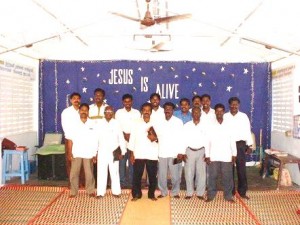 The goal of the equipping process is for you to select a project, to engage with the missionary and the project, to help develop the project with the missionary, and then, to eventually GO on a short-term missionary outreach.
The goal of the equipping process is for you to select a project, to engage with the missionary and the project, to help develop the project with the missionary, and then, to eventually GO on a short-term missionary outreach.
Equip the Nations, in conjunction with Youth With A Mission (YWAM), is ready to help you prepare a team of people who will go and serve alongside a project you have been supporting. Most of the Board Members at Equip the Nations have worked for years with many of the missionaries and their projects. We have hosted foreign teams while living stateside and abroad. We know what is required. We know what you will need to go. When available, we can send one of our team members from Equip the Nations with you or your team to help coordinate the outreach. However, because of our experience, we can also help facilitate your outreach without even going with you.
YWAM & Equip the Nations Outreach Orientation Information to India
There is not just “one” Indian culture. India is a melting pot of different cultures. These cultures can vary from place to place, people-to-people, urban to rural, and so on. However, participants can expect some general principles.
Contrasting aspects of cultures:
The “western” way of thinking does not easily fit into the Indian way of thinking. Set aside your western presuppositions and have an open mind to learn from the Indian people. Ask questions and observe. Just because a culture is different, does not mean it is wrong. You can learn much from the culture in India. For example, India, with its emphasis on respect for authority and close family relationships, in some ways reflects Christian values more than post-Christian western society.
TIME vs. EVENT: In westernized countries like the U.S.A. or Germany, time is important. A meeting scheduled for 3:30 will start at 3:30 or soon after. In India (and many other countries around the world), the event is more important, not the time it happens. A dinner scheduled for 6:00 may not happen until 8:00, 9:00, or even later!
GOAL vs. PEOPLE: In the West, the goal is important. When you have a meeting with an Indian, you (being a typical westerner) would probably want to get to the point fairly soon and discuss the business. The Indian would feel more like spending plenty of time drinking tea and just getting to know you, since in India, people are more important than the business.
DATING vs. NEVER DATE: Most Indians do not date. Marriages are usually arranged through their parents. A man and a woman seen alone together are assumed to be married. (Consequently, two western unmarried people should not be seen talking together alone, even if it is at a dinner table.)
CONFRONTATIONAL vs. NON CONFRONTATIONAL: Westerners rarely hesitate to confront or ask direct questions. Indians often avoid confrontation and take time to get to the point. Indians rarely display anger.
INDIVIDUAL vs. GROUP: Westerners (especially Americans) are very individualistic; they are independent, need privacy, and make decisions by themselves. In India there is more of a group orientation; people like to do most things together and are used to small houses with little privacy. Decisions are often made in a group; it has been known for entire villages or tribes to receive Christ as a group, with most of the decisions being genuine!
PERSONAL OWNERSHIP vs. COMMUNAL: In the West people are more possessive of personal belongings. In India, things are more communal. Others may use a person’s iPod, and it is an honor for others to wear their clothes. Things borrowed are not always promptly returned. (Only bring things that you are willing to leave behind.) If anyone in a group buys food, that person will need to share with everyone in the group. Meals are often communal at a restaurant, rather than ordered individually.
EQUALITY vs. RESPECT FOR ELDERS AND LEADERS: In the West, everyone is treated more equally, regardless of rank, age, or position. Relationships are more informal. In India there is much more respect for elders and leaders. You should carefully treat pastors, government officials, and village leaders with respect.
TO ADD TO YOUR CONFUSION: India is fast becoming more modernized and cosmopolitan. Outside influence is biggest in large cities and tourist areas. Indian YWAMers who have worked a lot with westerners are also usually quite gracious and will often try to accommodate your western way of doing things.
Therefore, sometimes you will find Indians on the western end of the spectrum on various issues. Events are often punctual. Some younger Indians date, and so on. Your challenge will be to figure out just how much of the outside world has influenced a person or community, so that you can know how to properly interact with the Indians with whom you are working. In any case, be adaptable, respect their way of life, and enjoy the experience of being a part of a different culture.
Dress
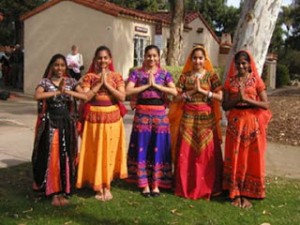 As a minister, professionalism, modesty, and neatness are the goals! Dressing modestly can look very differently in various cultures. Below are some guidelines that define modesty in the Indian culture.
As a minister, professionalism, modesty, and neatness are the goals! Dressing modestly can look very differently in various cultures. Below are some guidelines that define modesty in the Indian culture.
Women: Shorts are not permitted in any situation. Blouses that are tight or low-cut are not allowed. Clothing should also always cover the shoulders and upper arms. A slip/petticoat is necessary with skirts and dresses with see-through material. Avoid any hippie-type of appearance as much as possible. In Pentecostal or village churches, jewelry or make-up should not be worn or should be kept to a very minimum. Very short goth/punk haircuts will not go over well at all. Hair should be platted or tied back if long. In church, you will be expected to cover your hair with an odni dupetta or shawl during times of prayer (available with Punjabi suit).
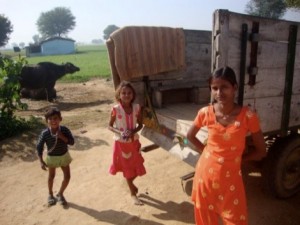 A Punjabi suit (or Shalwar Chameez), which is a combination of loose pants, long dress, and dupetta, is the most suitable and comfortable during times of outreach and church ministry. They cost around 7 - 15 U.S. Dollars. The dyes may be unstable. Punjabi suits can be tailor-made for larger women and will probably cost around 5 dollars more. A woman in a Shalwar Chameez should also wear the dupetta.
A Punjabi suit (or Shalwar Chameez), which is a combination of loose pants, long dress, and dupetta, is the most suitable and comfortable during times of outreach and church ministry. They cost around 7 - 15 U.S. Dollars. The dyes may be unstable. Punjabi suits can be tailor-made for larger women and will probably cost around 5 dollars more. A woman in a Shalwar Chameez should also wear the dupetta.
In YWAM Paddipa, all the girls will have to purchase the Punjabi suit and jewelry is not allowed (girls can sleep in it, but it must be taken off in the morning.)
Men: Please keep your hair short and neatly cut. Long hair on men is considered rebellious and inappropriate. If you have long hair, visit a good barber before you come to India! Do not wear shorts except on Goa or some beach areas. Avoid tattered or faded (worn) jeans. Usually it is best to avoid wearing jeans when doing ministry, unless it is something like a coffeehouse type of ministry in a westernized area. Full length neat cotton pants are best for looks and comfort. Do not walk around with only a towel or lungi on for any reason.
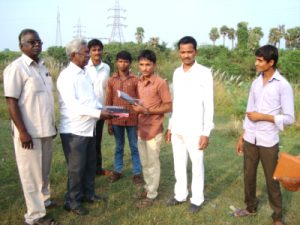 Shirts must always be worn in the public areas on and off YWAM centers. Do not go out in tank tops. When doing ministry of any type, wear shirts with collars. Avoid printing team t-shirts that are obviously Christian or that have “Youth With A Mission” printed on them. When attending church, special care should be taken that your clothes are neat and clean. Do not wear jeans or T-shirts when ministering. The traditional Punjabi suits for men are also available ($5 - $10); they are more popular in the north (Delhi, Calcutta) but rarely worn in the far south (Chennai).
Shirts must always be worn in the public areas on and off YWAM centers. Do not go out in tank tops. When doing ministry of any type, wear shirts with collars. Avoid printing team t-shirts that are obviously Christian or that have “Youth With A Mission” printed on them. When attending church, special care should be taken that your clothes are neat and clean. Do not wear jeans or T-shirts when ministering. The traditional Punjabi suits for men are also available ($5 - $10); they are more popular in the north (Delhi, Calcutta) but rarely worn in the far south (Chennai).
In YWAM Paddipa, the men must look professional. They must shave everyday (neat mustaches and beards are acceptable, but they must look well groomed). Nice dress shirts and dress pants can be purchased for $18.00 per set. If you do not bring professional looking clothes, you will be expected to purchase them before you minister. (Indians are small, so larger men will need to purchase their clothes before they come.)
Lastly, outreach is about representing God, not your local culture or style. You should look your very best every day!
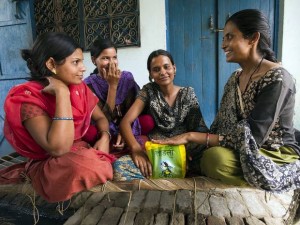 Giving up cultural “rights”
Giving up cultural “rights”
Be prepared to lay down your cultural “rights” when in India. Some things that are perfectly acceptable in the West are offensive in Indian culture. If you are willing to give up your “rights” in order to fit into the Indian culture, you will find that you will have a much more effective outreach in India.
The Apostle Paul wrote, “Though I am free and belong to no man, I make myself a slave to everyone, to win as many as possible. To the Jews I became a Jew, to win the Jews. To those under the law I became like one under the law (though I myself am not under the law), so as to win those under the law.” (I Corinthians 9:1)
Miscellaneous Cultural Guidelines
• Avoid any kind of touching of the opposite sex (including within your own team), even the laying on of hands. (Dramas must be redone so that no one is touching each other.)
• Men can and sometimes may hold hands with each other.
• A single man and a single woman should not be spending time alone together or go out in public together. Guys should avoid going into girls’ rooms and vice-versa.
• A single man and single woman should not have exclusive conversations, even in public areas, and they should never sit next to one another.
• You should use your right hand for all social interactions, whether passing money, tracts, food, or any other items. When eating without utensils, use the right hand only. (The left hand is only for bathroom duties.)
• When meeting, men often shake hands with other men, but not very often with the women. Men should not offer their hand to shake hands with a woman. If a woman offers her hand to shake with a man, then it is OK.
• Shoes should be taken off when entering a home (most churches also), even if told to leave them on. At some churches you will only need to remove your shoes if you go to the front altar area to preach or sing, etc.
• When attending a church, the offering will likely be fairly visible. Have everyone in your group bring at least a small rupee note to put in the offering. Remember, 10 rupees is only 25 cents!
• The views of many Christians in the less westernized parts of India are similar to those seen in American churches in the 1950s - secular music, going to movie theaters, and playing cards are all sin! In order not to offend, be prepared to follow these more conservative guidelines.
• Conversation should be gentle and not too loud (especially, for example, in nicer restaurants). Do not interrupt someone when they are speaking.
• Women, beware of “Eve teasing” (men pinching women), which occurs more often in crowded situations and more commonly in north India. It is OK to tell someone to “back off.” Men, treat the women on your team as your very close sisters. Be protective.
• Tipping is done at nicer restaurants at 5-10% of the bill. At average restaurants there is no need to tip, but it is nice to round up the bill.
• Indians often politely refuse refreshments or other things offered to them. If you offer to buy an Indian friend a Coke and they politely refuse, they may still really want one! Ask three times to be sure.
• Never direct the soles of your feet at any person or put your feet on the coffee table.
• Be sensitive about taking photos of people, especially women, who may find it offensive - always ask first. Using a zoom lens can help you be less obtrusive. Taking photos at a death ceremony, religious ceremony, or of people bathing (in baths or rivers) may cause offense.
• When visiting a traditional Indian home, do not enter the kitchen unless invited to do so.
• Do not identify yourselves as “missionaries.” In the minds of some Indians, that word brings up the image of “the white man coming to Christianize the natives.” Rather, identify yourselves as students, Christian students, volunteers, etc.
• To be on the safe side, when out in public, it is better to identify yourselves as being with the “University of the Nations” (or the name of your local base/training program) rather than Youth With A Mission or Equip the Nations. With any Christians you meet, however, you can mention that you are with Equip the Nations or YWAM.
• Do not get angry when bargaining; it is meant to be a sort of game. Be firm but friendly at the same time! Realize that as a foreigner, in bargaining situations you will usually have to pay more than the usual price. Your goal should be to not pay too much more than normal! If you offer a certain amount for something and they accept, then customarily you must buy.
• Postage stamps are not licked (at least don’t do it in public!) Water or paste is provided to moisten them.
• Unless the National team leaders teach you how, do not preach against idolatry or other religions. Rather, tell people about Jesus.
• If a person invites someone else for a cup of tea or lunch, usually it is expected that the person who did the inviting will pay the bill.
• When preaching or teaching in a traditional Indian church, it is usually best to begin and end with prayer.
• In more culturally traditional Christian settings, women always cover their heads with a shawl (dupetta) during times of prayer.
• Earrings on men (and sometimes earrings on women), long hair on men, very short hair on women, shaved heads, and nose rings should be avoided.
• Especially in the south, avoid getting tika dots (bindis) on your foreheads. The tika dot is seen by most to be the identification mark of a Hindu.
• Beware of pickpockets and thieves in buses, theaters, railway stations, or any other crowded situations. Keep your money belt underneath your clothing. Watch your back packs in those crowded areas. The vast majority of Indians are very honest, but there is that small percent who you need to guard against!
• When a guest comes to visit you, always offer at least some water (and tea/coffee/crackers if available). Offer them at least two or three times, as Indians will often refuse the first couple of times to be polite.
• Rather than being called be their names, older people are often referred to as “uncle” or “auntie.”
• Visits tend to be longer in India. Dropping by someone’s home may be a one or two hour visit instead of just a few minutes.
• When teaching or preaching, avoid getting too academic or theological. Use lots of practical illustrations and stories.
Money
ATM’s are readily available in Chennai and other cities. Before you leave the airport, exchange all team money. Exchanging money later will cost you time, energy, and money.
Food
Always be sure to drink a lot of water when in a hot climate.
Nearly everyone goes through varying degrees of intestinal disturbances when traveling to India or any Asian country. When in trouble, it is best to just stop eating hot and spicy food. Eat bland food and continue to drink lots of fluids, especially purified/bottled water.
It is not advisable to eat from roadside stands where the food is open to flies. Fruit juices and Lassi drinks that are made on roadsides are usually not safe either.
Water
Dysentery and bowel diseases are common in the tropics. Purity of water is very important to your health. Drink only boiled, filtered, or purified water. Most YWAM bases have filtered water available, thought the filters vary in quality. You can find bottled water in most areas.
Avoid drinking water in second-rate restaurants. It is usually better to purchase a bottled cold drink than to risk drinking contaminated water. Bottled water is sold everywhere in India and is safe and good to drink.
Health Precautions
Hookworm can be picked up through bare feet if the weather is wet or the ground is damp. Always wear shoes or sandals. Closed shoes are best.
A persistent cough (especially a deep one) may be bronchitis (which can turn to pneumonia if untreated) or tuberculosis. To be on the safe side, be sure to see a doctor.
If diarrhea persists more than 3 days and includes blood or mucus (!), it is probably amoebas; if watery and foul-smelling, it is probably Giardia. Both are caught from bad water and need to be treated with prescription drugs. If a clinic or hospital is nearby, you can have a stool test done and a prescription given very inexpensively.
Drink plenty of liquids, especially if you are in a hot climate or have diarrhea. You usually need to drink more liquids than you think you need to drink. Be sure to drink a lot of water immediately if you get a headache, as that is one of the first signs of dehydration.
Wash all cuts, punctures, or animal bites right away to prevent tetanus.
Don’t hesitate to see a doctor if any health problems persist or look serious. Western missionary hospitals have better facilities than government hospitals where long lines are common. If someone is staying at any Indian hospital, it is common practice to have a friend stay with that person. India also has many qualified doctors with their own private clinics.
Bargaining
Most shops (especially grocery and general supply stores) have fixed prices. In every gift and clothing shop there will be a sign if prices are fixed. Outside stands or fruit and vegetable markets can sometimes be bargaining situations. Realize that, as a foreigner, you will probably end up having to pay a little bit more than the locals. Your goal should be to not have to pay too much more than normal! Never get angry when bargaining. It is meant to be more like a friendly game. If you make an offer and they accept, you must buy.
Beggars
You will meet beggars in India. Since there is virtually no state welfare system in India, many beggars have no other way to support themselves. In any case, always be kind to beggars. The usual amount to give is between 50 paise and 2 rupees. It helps to always have some small change with you. You can also give food to beggars.
House-to-House Evangelism
Going door-to-door to share your faith can often be effective. Many people will invite you in, and even the strongest Hindus or Muslims will often offer you tea and biscuits! Take time to share about yourselves, your testimony, the gospel message, and be sure to ask about them. If they sense that you are interested in them, taking the time to talk to them as friends, then they will be more open and will be more impacted by what you have to share. Ask them if there is anything about which you can pray for them. They appreciate this and will usually have prayer requests. Prayer should be quiet and gentle.
Friendship Evangelism
Indians are very friendly and often like to meet foreigners. If language is a complete barrier, remember that even a smile and a tract can be effective! Be their friend! Your attitude will speak louder than anything.
Tracts
Tracts can be obtained in Madras and are quite inexpensive. India Bible Literature and other organizations have them available.
Other topics to cover during orientation
- Communication – internet, phone, mail, fax
- History of the city of Madras
- Dealing with Madras Rickshaw wallahs
- Areas of Madras, bus and commuter train transport
- Things to see and do
- Hinduism and Islam
- What churches are like
- How to teach (use stories, don’t get too theological)
- Ministry opportunities
- Southern Indian foods
- Laylalita, MGR, Vajpayee, etc.
